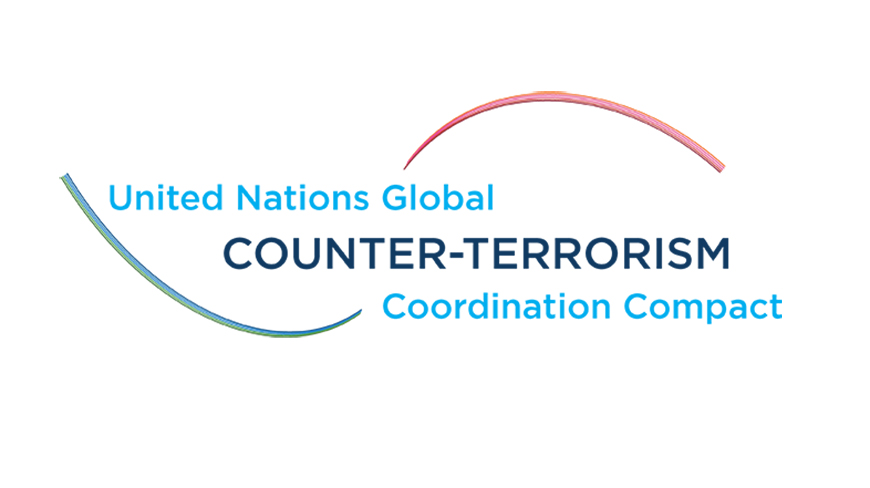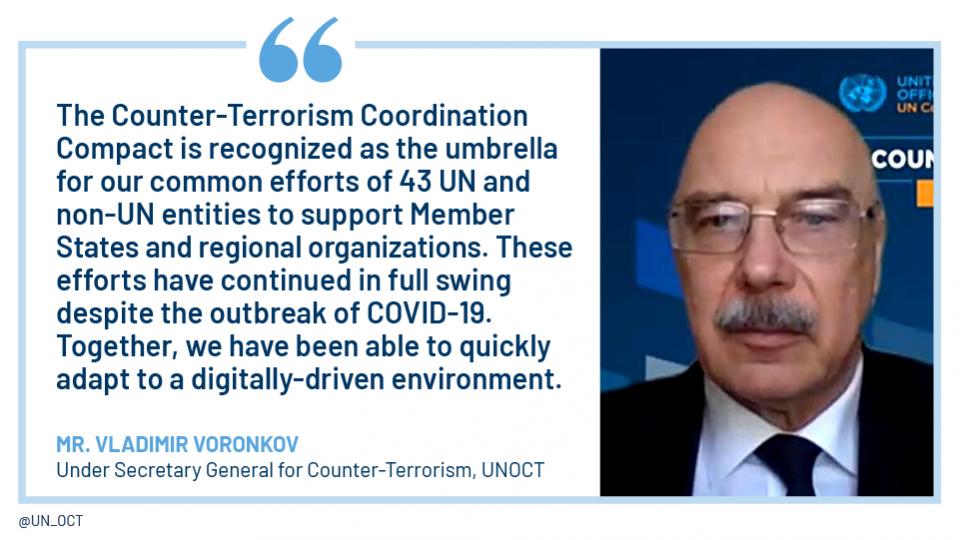Continued and coherent support to Member States on preventing and countering terrorism is critical during and after COVID-19 crisis
The Coordination Committee of the United Nations Global Counter-Terrorism Coordination Compact held its fifth meeting on 28 August 2020 to reinforce common action in supporting the balanced implementation of the United Nations Global Counter-Terrorism Strategy amid the disruption and human crisis caused by the COVID-19 pandemic.
Heads of entities and other senior representatives from 29 United Nations entities as well as INTERPOL and the World Customs Organization participated in the meeting. The Indonesian Chair of the Security Council ISIL (Da’esh) and Al-Qaida Sanctions Committee and the Afghan and Spanish Co-chairs of the Group of Friends of Victims of Terrorism participated for the first time in the opening session of a Committee meeting, to enhance synergy with intergovernmental efforts to address the evolving terrorism landscape.
Chairing the meeting, Mr. Vladimir Voronkov, Under-Secretary-General for Counter-Terrorism, welcomed the fact that the Counter-Terrorism Compact has gained broad recognition as the umbrella for the collective efforts of its 43 members and observers. He highlighted the progress achieved in the implementation of the Counter-Terrorism Compact throughout 2019 and since the beginning of 2020.
Reflecting on this progress and the outcomes of the United Nations Virtual Counter-Terrorism Week and the third commemoration of the International Day of Remembrance and Tribute to Terrorism, the Coordination Committee exchanged views on the strategic priorities, thematic and operational adjustments needed to ensure continued support to Member States during the pandemic and beyond. “We need to make the most of the coming months that will take us to the second counter-terrorism week in New York and the seventh biennial review of the Global CounterTerrorism Strategy” said Mr. Voronkov, stressing the need to emphasize unity, multilateralism and building social and institutional resilience to terrorism.
In a special address to the Committee, Ms. Michelle Bachelet, United Nations High Commissioner for Human Rights, outlined how the Counter-Terrorism Compact and its entities could contribute to the realization of Secretary-General’s Call to Action for Human Rights. She also called upon the Counter-Terrorism Compact and its entities to seize the moment of this pandemic reset to work with Member States to address inequalities and injustices. “We need to think boldly and bravely about how our work can better support a new global deal. We need to put human security at the centre and to rally behind a transformative agenda on counter-terrorism that tackles these security issues in the longer term. We need to ensure our work is fully coordinated, in line with a vision that sees all sides to the problem, rather than working in our silos of narrow expertise,” she stressed.
The Committee was also briefed on progress in the work of the Counter-Terrorism Compact’s eight Working Groups, which have continued their work despite the outbreak of COVID-19, and its Global Counter-Terrorism Coordination Platform, which has been joined by112 Member States and visited already over 25,000 since its launch in March 2020.
Launched in December 2018 as part of Secretary-General António Guterres’ reform of the UN counter-terrorism architecture, the Global Counter-Terrorism Coordination Compact is one of the largest coordination frameworks across the three pillars of work of the United Nations: peace and security, sustainable development, human rights and humanitarian affairs. The 43rd and most recent signatory to the Counter-Terrorism Compact, the United Nations Institute for Disarmament Research, joined in February 2020.



